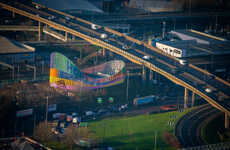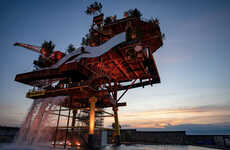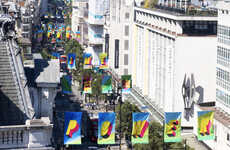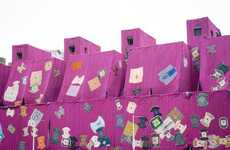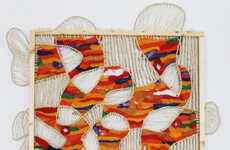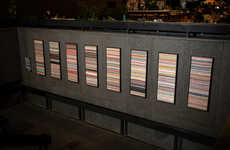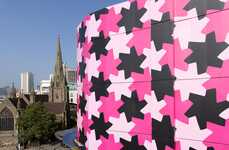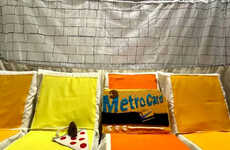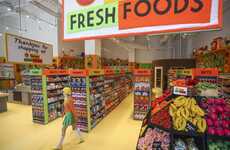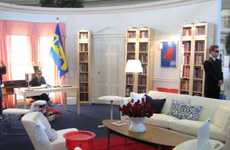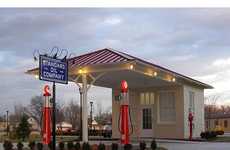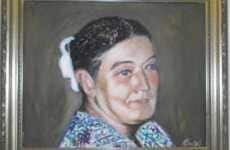
International Fiber Collective For Oil Dependency Awareness
References: internationalfibercollaborative & unusuallife
The world’s first fabric-covered gas station is the work of artist Jennifer Marsh who was both sick of paying high gas prices and tired of seeing the 50-year-old eyesore on her daily commute. She organised a project, the International Fiber Collaborative, to cover the old Citgo station which involved not just professional and amateur artisans from 15 countries, but also 2,500 schoolchildren from 29 US states. The object of the exercise was to express concern over the world’s utter dependence on oil.
The colourful fibre panels were crocheted, knitted, stitched and quilted and covered over 5,000 square feet. Every part of the old gas station was treated to fabric including the pumps and signs. Marsh financed much of the $29,000 project herself with help from grants and donations. She also encourages others to do the same with her tips page.
The colourful fibre panels were crocheted, knitted, stitched and quilted and covered over 5,000 square feet. Every part of the old gas station was treated to fabric including the pumps and signs. Marsh financed much of the $29,000 project herself with help from grants and donations. She also encourages others to do the same with her tips page.
Trend Themes
1. Fabric-covered Structures - The trend towards using fabric to cover structures such as gas stations presents an opportunity for artists and artisans to transform mundane spaces into visually captivating works of art.
2. Community Collaboration - The International Fiber Collaborative project showcases the power of community collaboration, providing an opportunity for businesses to engage with local communities and create meaningful projects that raise awareness and promote a sense of belonging.
3. Sustainable Activism - Jennifer Marsh's project highlights the potential for using artistic activism to express concerns about oil dependency, opening up opportunities for businesses to support and collaborate with artists in raising awareness about pressing environmental issues.
Industry Implications
1. Art and Design - The art and design industry can capitalize on the trend of fabric-covered structures, collaborating with cities and businesses to transform ordinary spaces into visually stunning installations.
2. Education - The education industry can explore opportunities to incorporate community art projects like the International Fiber Collaborative into the curriculum to foster creativity, global awareness, and civic engagement among students.
3. Sustainability - The sustainability industry can partner with artists and activists to create impactful projects that convey environmental messages, driving awareness and inspiring behavioral change towards a more sustainable future.
4.6
Score
Popularity
Activity
Freshness

